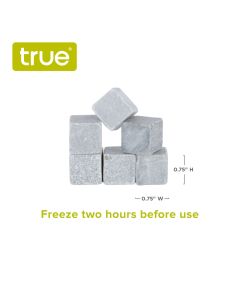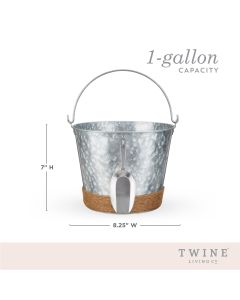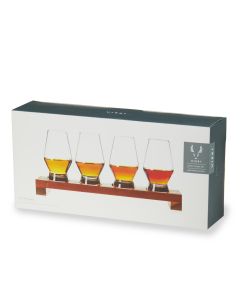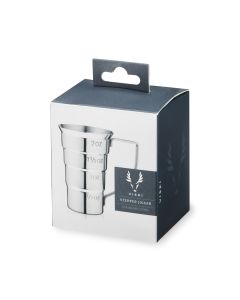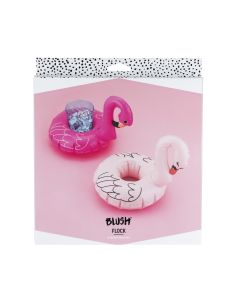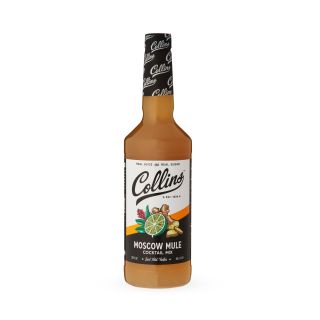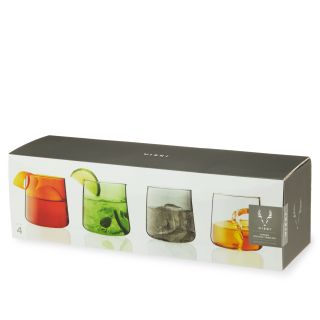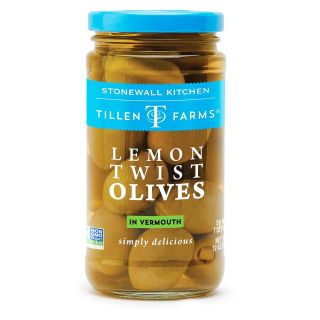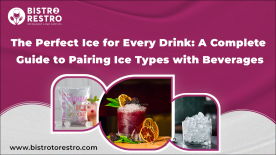Cocktail mixers play an indispensable role in the drink-making cocktail world because they are responsible for turning regular beverages into wonderful beverages. A drink's quality depends entirely on the mixer; however, the alcohol category receives the spotlight and not the blend which creates miracles. Both a novice home bartender and a seasoned professional bartender should appreciate the significance of premium mixers along with a fully equipped bar because these elements will sharpen your cocktail creation abilities.
The complete guide reveals all essential cocktail mixers which mixing professionals need to keep in their collection. The guide provides terminology for essential mixers and their applications and methods to select optimal mixers for mixology projects.
What Are Cocktail Mixers and Why Are They Important?
A cocktail mixer refers to any non-alcoholic substance which enhances cocktails through flavor or texture or dilution. Mixing a beverage with these substances enables alcohol base balancing due to their differing sweetness levels alongside sourness and bitterness qualities. The correct mixers make all the difference because they transform even the best spirits from flat to balanced.
Cocktail mixers serve more than sweetening the drink since their purpose is to add complexity while enhancing its overall quality. The correct mixers enhance cocktail quality during any season so that you can create impressive beverages for both summer refreshment and winter warmth.
How to Use Cocktail Mixers
To create appetizing drinks with suitable balanced cocktail mixers require proper application during the preparation process. Here’s a quick guide:
Standard Ratio: The standard mixing ratio consists of two parts mixer combined with one part spirit. The 2:1 mix ratio produces a balanced drink that allows the mixer to enhance the alcoholic base.
Adjust for Taste: You can modify drink strength and sweetness levels through taste adjustment by changing the mixer ratio. A stronger drink results from using less mixer while adding more mixer creates a lighter refreshing taste.
Choose the Right Mixer: Select a mixer that matches the flavor characteristics of your spirit and mixer ingredients. The combination of rum or vodka pairs best with fruity mixers but whiskey-based drinks require bitters or soda as their perfect match.
Create Signature Cocktails: Using mixers gives you the ability to develop original cocktails. Test different combinations between fresh juices along with herbs and syrups to innovate new beverages that have distinct flavors.
Consult a Professional: Professional advice should be taken by mycologist because complicated cocktail recipes need precise balancing which can only be achieved through expert consultation.
BistroToRestro offers a wide range of premium liquor accessories, including jiggers, muddlers, shaker sets, strainers, and bottle openers. Whether you're stirring up classic cocktails or experimenting with new recipes, our high-quality tools ensure precision and style. From mixing spoons to pourers, we have everything you need to craft the perfect drink.
The Foundation: Fruit Juices
Classic cocktails depend on fruit juices as their fundamental ingredient. Fruit juices contribute three essential elements to cocktails by providing brightness, sweetness, and acidity which balances the liquor with other components. The following list contains the basic fruit juices that mixologists need to maintain in their inventory:
Lime Juice
Lime juice serves as an essential component for making Margaritas and Daiquiris and Mojitos cocktails. Lime juice brings its tart flavor as needed to balance spirits including gin, tequila, and rum which produces a zesty and refreshing energized experience.
Pro Tip: Freshly squeezed lime juice delivers a superior taste than bottled lime juice. The fresh taste of juice creates cocktails that become more noticeable and appealing to the palate.
Lemon Juice
Just like lime juice, lemon juice also adds a tart flavour which enhances the drink’s taste. This citrus juice is served in mixed beverages such as Whiskey Sours and Tom Collins and Gin Fizzes. Lemon juice works perfectly with whiskey, gin, and vodka as well as other spirits.
Pro Tip: Freshly squeezed lemon juice provides the best taste experience. The addition of preservatives in bottled lemon juice changes its original taste.
Orange Juice
Many popular cocktails use orange juice as their base ingredient to create the iconic Screwdriver and Tequila Sunrise among others. The combination of sweetness and acidity in orange juice creates a perfect match for vodka, rum, gin, and tequila.
Pro Tip: Freshly squeezed orange juice should be your choice whenever it is available. Freshly squeezed orange juice enhances your beverages with a deep and flavorful taste.
Cranberry Juice
Cranberry juice serves as a key ingredient in mixed drinks such as the Cosmopolitan and Sea Breeze. The combination of tartness and bitter notes in cranberry juice serves as an excellent ingredient for balancing sweet components in cocktail recipes.
Pro Tip: The pure form of cranberry juice works best instead of the sugary cocktail mix because it delivers authentic tartness without excessive sweetness.
Pineapple Juice
The tropical taste of pineapple juice enhances cocktail beverages. Pineapple juice serves as a key ingredient in Piña Coladas and Mai Tais and matches perfectly with rum vodka and gin.
Pro Tip: The recommended method for pineapple juice preparation involves using fresh juice because it provides natural sweetness without the artificial flavor.
The Classics: Soda and Tonic
Sodas and tonics serve as essential ingredients in cocktails because they create effervescence and fizz. Sodas and tonics serve to create texture and lightness while uniting different flavors in mixed drinks.
Club Soda
Club soda works as an excellent neutral mixer because of its carbonation which provides effervescence while preserving drink flavors. Club soda serves as an ingredient in highballs gin and tonics and spritzers.
Pro Tip: Seek club soda that contains no sodium additives to achieve a purer fresher taste.
Tonic Water
Tonic water serves as an essential component in cocktail recipes that include the Gin & Tonic, Vodka Tonic and Tom Collins. The quinine content in tonic water creates a slightly bitter flavor which perfectly matches with gin and other spirits.
Pro Tip: Select high-quality tonic water with a balanced bitterness and sweetness. It is important to research different tonic brands since some products have either excessive sweetness or extreme bitterness.
Ginger Beer
Ginger beer exists as a non-alcoholic carbonated beverage which delivers spicy ginger taste. Ginger beer serves as the main component in both Moscow Mule and Dark and Stormy cocktails. The potent ginger beer enables a distinctive flavor profile which both diminishes sweet notes and harmonizes all ingredients.
Pro Tip: Choose a ginger beer with a strong, spicy flavor. The beverage should avoid excessive sweetness because its distinctive flavor comes from the spicy components.
Cola
Classic cola serves as an excellent mixer for whiskey and rum alongside other dark spirits. The iconic combination of sweetness and fizz in cola makes it a popular choice for both Whiskey and Cola and Rum and Coke drinks.
Pro Tip: Opt for high-quality cola with fewer artificial ingredients for a cleaner flavor profile.
Sweeteners: Balancing Tartness and Bitterness
Cocktail sweeteners help balance the sourness or bitterness of a drink, making it more palatable and enjoyable. The right sweetener can transform a cocktail from bland to extraordinary.
Simple Syrup
Simple syrup is a go-to sweetener for many cocktails. It’s made by dissolving equal parts sugar in water and is the perfect solution for sweetening cocktails without the granularity of undissolved sugar. It’s commonly used in cocktails like Mojitos, Whiskey Sours, and Daiquiris.
Pro Tip: You can easily make your own simple syrup at home by heating sugar and water together. You can also experiment with flavored simple syrups like lavender or cinnamon for a unique twist.
Agave Syrup
Agave syrup is a natural sweetener made from the agave plant, often used in cocktails like Margaritas and Tequila-based drinks. It's sweeter than sugar but has a lower glycemic index, making it a popular alternative to simple syrup.
Pro Tip: Use agave syrup in moderation as its sweetness can quickly overpower other flavors in the drink.
Honey
Honey adds a rich, floral sweetness that can enhance cocktails like the Bee’s Knees or Hot Toddy. It’s perfect for adding depth and complexity to a drink, especially in colder weather.
Pro Tip: Always use raw or organic honey for the most authentic flavor. You may need to warm it slightly to make it easier to mix into your cocktails.
Also read on: Sweet Solutions: How Do Syrups Enhance Your Mixology Toolkit?
Flavor Enhancers: Adding Complexity
Your cocktails will reach their highest potential if you introduce flavor enhancers which deliver refined and intricate tastes to your beverages. Using such ingredients creates complexity which takes your cocktail experience to a higher level.
Bitters
Drinks gain their profound complexity from highly concentrated extracts made from herbs or botanical elements referred to as bitters. People typically use bitters for making traditional cocktails including the Old Fashioned and Manhattan and Negroni. Several dashes of bitters will both tame excessive sweetness and let cocktail aromas shine through.
Pro Tip: Test different bitters including Angostura and orange bitters and Peychaud’s to determine which ones best complement your cocktail preferences.
Grenadine
Grenadine represents a sweet syrup derived from pomegranate juice combined with sugar. Grenadine serves as a cocktail ingredient in Tequila Sunrise and Shirley Temple drinks while adding sweetness and a deep red hue.
Pro Tip: When selecting grenadine always choose products containing genuine pomegranate juice instead of artificial sweeteners and colorants.
Maraschino Cherry Syrup
The syrup extracted from maraschino cherries serves as both a decorative element and flavoring agent for drinks such as the Manhattan and Cherry Smash.
Pro Tip: The use of maraschino cherry syrup should be limited because it contains high levels of sweetness.
The Special Touch: Mixers for Unique Cocktails
Professional mixologist appreciates having distinctive mixers in their bar because they enable creative cocktail development. Mixologists use a wide range of unique mixers that include exotic juices and unusual syrups and flavored waters.
Coconut Water
The tropical drink Piña Colada uses coconut water as its refreshing sweet mixer. The beverage contains few calories while delivering a gentle nutty taste which complements rum cocktails.
Pro Tip: Fresh coconut water delivers the best flavor in cocktails because it naturally sweetens the beverage.
Flavored Syrups
Creative cocktails can receive an eye-catching touch from flavored syrups which include raspberry, lavender or ginger among other choices. The syrups function as ideal components to create unique signature cocktails which impress guests.
Pro Tip: The use of flavored syrups should remain minimal because they tend to dominate the drink quickly. The right taste profile emerges when you use citrus or bitters to balance flavored syrups.
Check out The Ultimate Guide to Cocktail Garnishes
The Key to Crafting Perfect Cocktails
Having different cocktail mixers at your disposal lets you expand your cocktail creation possibilities toward remarkable and tasty beverage creations. The selection of mixers together with their quality determines how much your drink-making experience will improve regardless of using a traditional Martini or an innovative cocktail.
A fully stocked bar with these basic mixers will provide everything needed to create the ideal drink for any celebration. A perfect cocktail requires equal parts of spirit and mixer with the right garnish to achieve balance. Experiencing different ingredients consistently will help your creativity glow through your cocktail pouring technique.
FAQs
Can I Make My Own Cocktail Mixers?
Yes, Multiple cocktail mixers exist in which people can prepare themselves. Fresh ingredients obtained from local suppliers will strengthen cocktail quality while delivering individuality to your beverage selection. The homemade mixer experience offers both freshness and customization potential that you should promote through marketing to differentiate your business.
What’s the Shelf Life of Cocktail Mixers?
The shelf life varies, Homemade mixers need to be used within a few days after preparation to maintain freshness and taste quality. Placing the mixture in a dark and cool environment helps maintain its longevity.
Do Cocktail Mixers Contain Alcohol?
The majority of cocktail mixers do not contain alcohol yet vermouth stands out as an exception because it has trace amounts of alcohol. Read the label to determine alcohol content when you have concerns about alcohol levels.
What’s the Difference Between a Cocktail Mixer and a Cocktail Syrup?
Mixers serve as ready-to-use liquid components while syrups need dilution to become usable. Syrups exist to provide both sweet taste and deep flavor complexity.
Are There Low-Sugar or Sugar-Free Cocktail Mixers?
Yes, You can make your mixers by using either stevia or monk fruit as substitutes. The market provides various mixers with low-sugar or sugar-free content including tonic water and soda and fruit juices.


